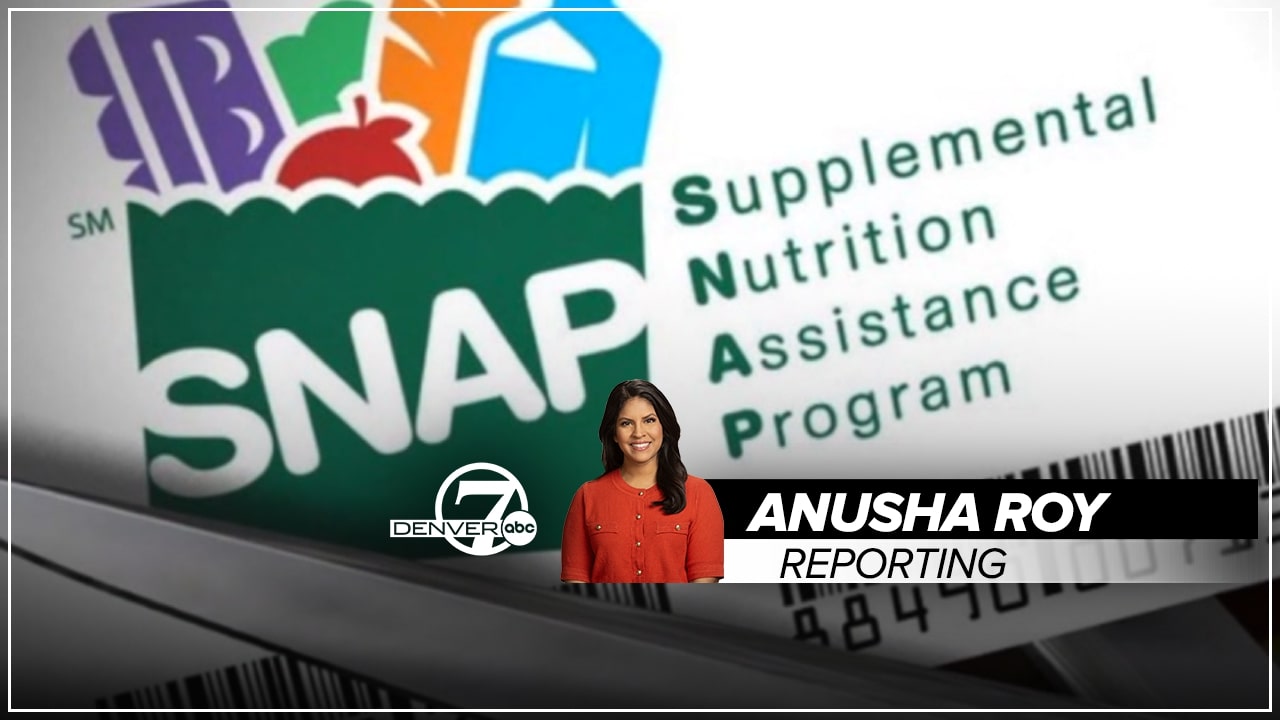DENVER — As we get closer to the SNAP benefit freeze on Saturday, one thing we've heard repeatedly from Colorado nonprofits trying to fill the gap is that these are unprecedented times. The Colorado Department of Human Services gave Denver7 some perspective.
In an email, John Rosa, the communications manager Office of Economic Security with CDHS, wrote, "This current government shutdown is unique as far as funding for the Supplemental Nutrition Assistance Program (SNAP) and the hold of benefits. While we have prepared for similar situations during other shutdowns, the shutdowns were always resolved before there was an actual delay in client food assistance."
Rosa then walked us through the timeline of what happened in 2018 — the only other shutdown longer than the one we are in now.
The federal government partially shut down in December 2018. Rose wrote, "SNAP benefits for January of 2019 were delivered normally. As that shutdown continued and appeared headed toward an extended period of time, the U.S. Department of Agriculture asked states to issue February 2019 SNAP benefits early to prevent a lapse in payments. February’s SNAP benefits were delivered to Coloradans between Jan. 16-20, 2019 as an “advance” SNAP payment."
The shutdown ended Jan. 25, 2019. So benefits were delivered, but the timing was off. That meant some people dealt with a gap of up to 50 days between payments.
Rose wrote, "Because February SNAP food assistance had already been delivered, it led to a gap of up to 50 days between the last payment (in January) and the next (March) for some recipients."
This time around, it is playing out differently because payments are not being delivered on Nov. 1. Denver7 asked The Action Center, a nonprofit based out off Jefferson County, what the long-term impact could be.
"Honestly, it's an emotional thing to think about, to be honest, because I don't know the answer," said Sunny Garcia with The Action Center. "You know, if I were to just think about my own experience when I was on SNAP, and it was a struggle, they're going to have to go to several different pantries in the month to make it work. They're going to be taking loans that they can't pay back. I mean, there's probably a whole lot of things that families will have to figure out in the next month or two, and we're going into the holidays, so it's already a super stressful time of year."
The Action Center typically serves 200 to 300 people a day, but is now working to ramp up to as many as 50 more people a day.
Garcia said they know they won't be able to reach all the people who will need help.
"We're talking 600,000 Coloradoans who receive SNAP benefits. There is no way for us to fill that gap, but we will do the best we can for sure," Garcia said.
The leaders at The Action Center said financial donations are also extremely useful because they can stretch a dollar differently when it comes to buying food and helping families in need.





